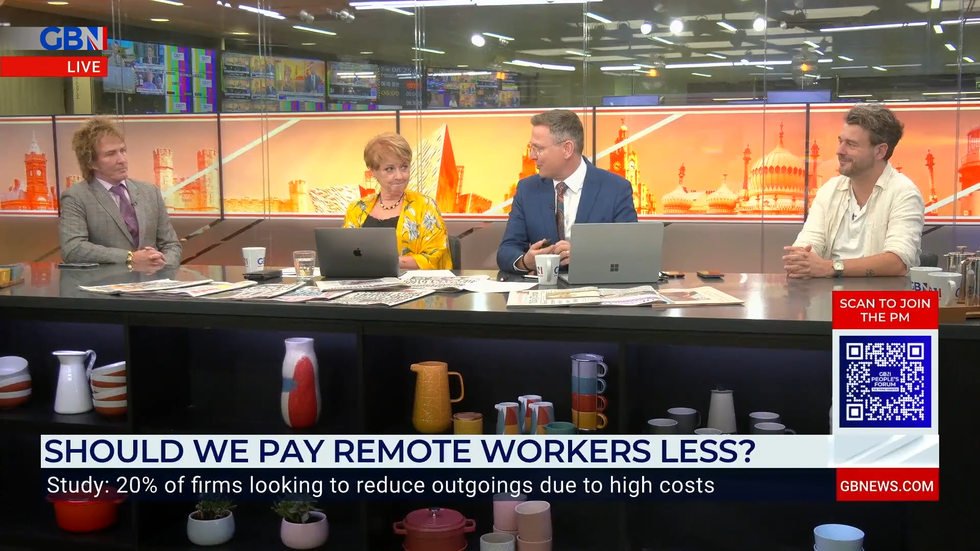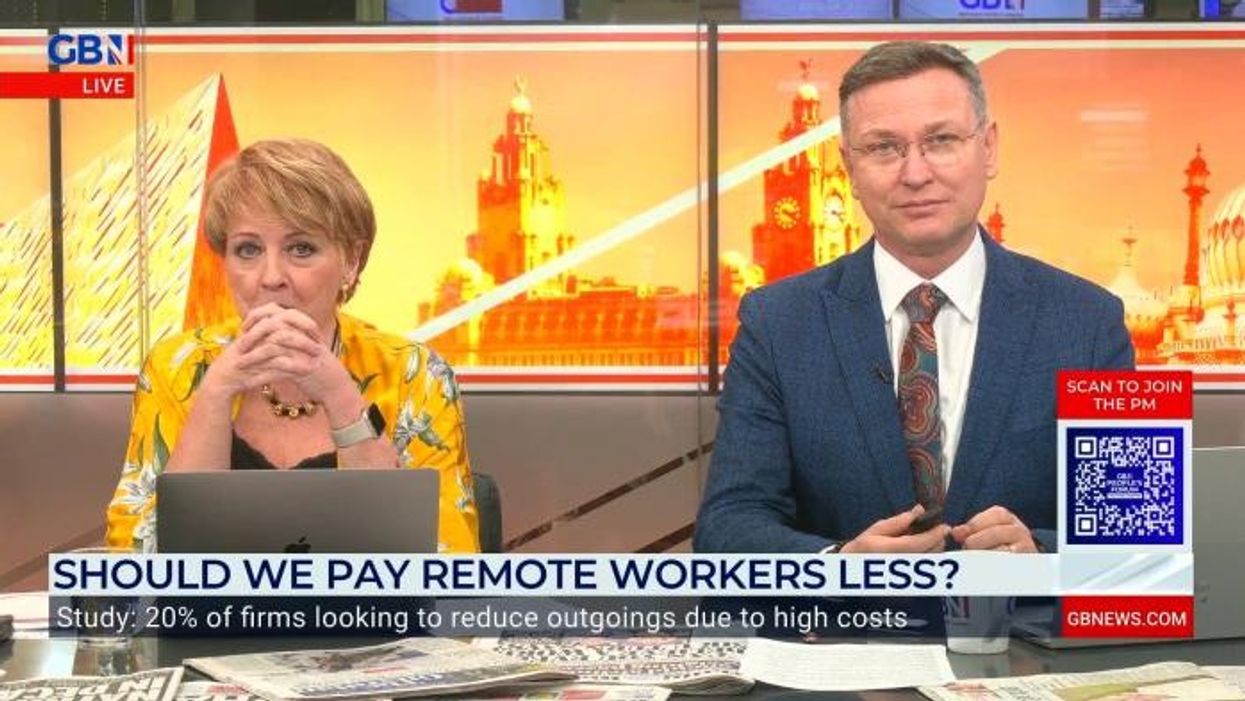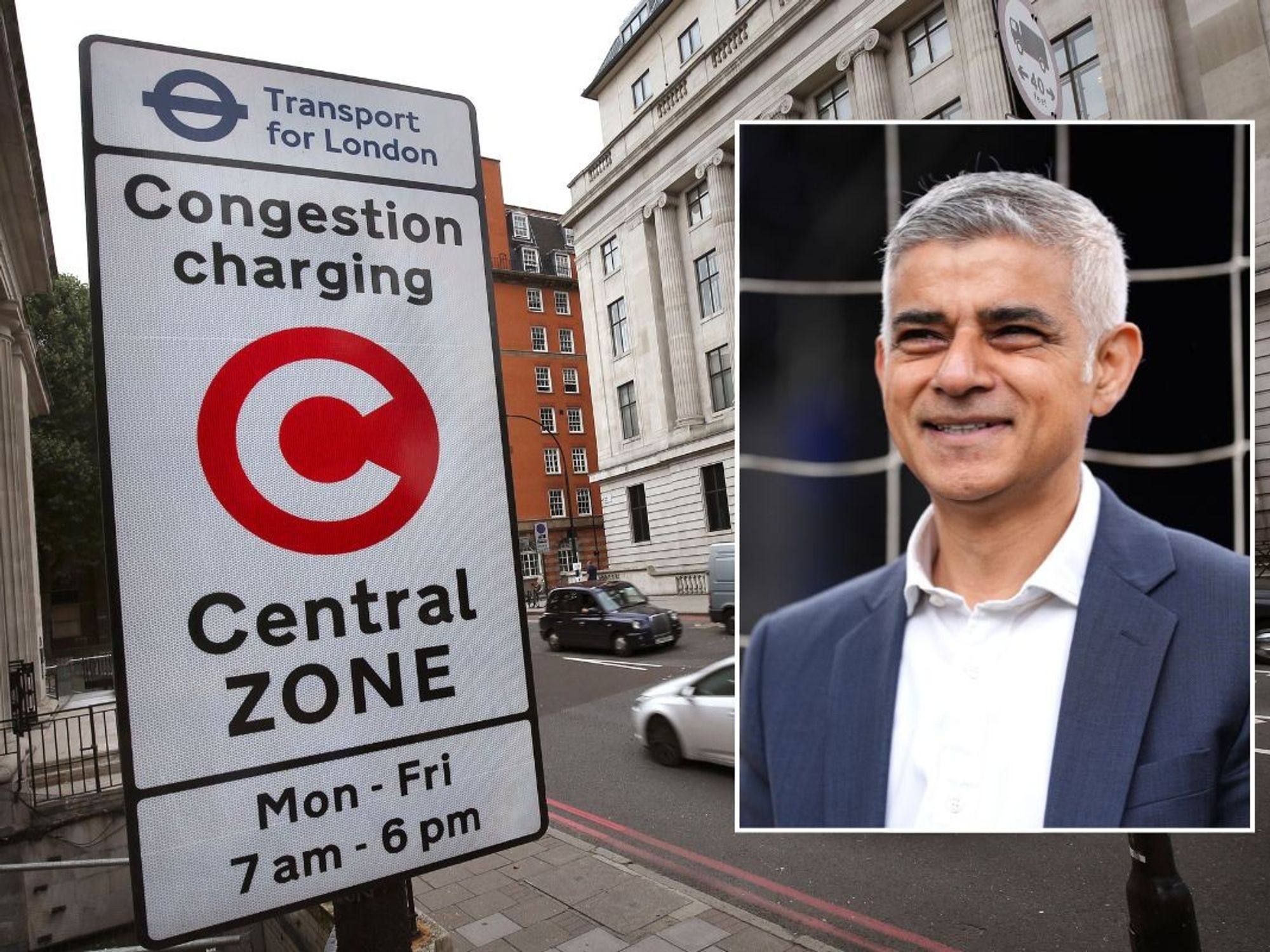Charlie Mullins blasts working from home in debate as remote workers face pay cuts: 'HALVE their wages!'

A new study that found 20 per cent of firms are looking to reduce pay for remote workers
Don't Miss
Most Read
People who work from home should be paid less, it has been claimed.
Pimlico Plumbers founder Charlie Mullins spoke on GB News about a new study that found 20 per cent of firms are looking to reduce pay for remote workers in a bid to cut costs.
He told Stephen Dixon and Anne Diamond that he is fully supportive of the idea, questioning why they deserve the same amount as those who pitch up at their workplace.
“Undoubtedly you can pay them less”, he asserted.

Pimlico Plumbers founder Charlie Mullins spoke on GB News about a new study that found 20 per cent of firms are looking to reduce pay for remote workers
|GB NEWS
“Why would you pay them the same amount as somebody making an effort to come into the office?”
He went on to argue that those working from home are not contributing to the economy as much as those who are based in the office, adding they are doing “50 per cent less work”.
LATEST DEVELOPMENTS
 Working from home is 'selfish', according to Charlie Mullins | PA
Working from home is 'selfish', according to Charlie Mullins | PA
Charlie Mullins joined Anne Diamond and Stephen Dixon on GB News
|GB NEWS
“I would pay them 50 per cent less”, he argued.
“I don’t allow anyone to work from home anyhow, they would need to get a job somewhere else.
“Obviously there is a certain amount of people that do work from home and are more productive, but I believe the majority are not.”
Disagreeing was Restaurateur Alex Wrethman, who argued working from home should not be a cause for concern if the employee is continuing to carry out all the tasks expected of them.
“I’ll be looking at that the person is producing for the company rather than thinking they’re going to be sitting at home doing nothing”, he said.
“That’s really up to management to make sure that’s going smoothly and the business is productive.
“In terms of working from home, they may save costs on travel, but equally the business is saving costs on office space.”
UK workers spend an average of 1.5 days a week at home, according to IFO Institute data, significantly more than European counterparts which has resulted in the country being dubbed the working-from-home capital of the continent.
The working from home revolution kicked off during the pandemic and has been hailed as a solution to many time-related stresses.
However, many bosses have pushed to get workers back in the office amid fears of declining productivity as well as other logistical work-related issues.











